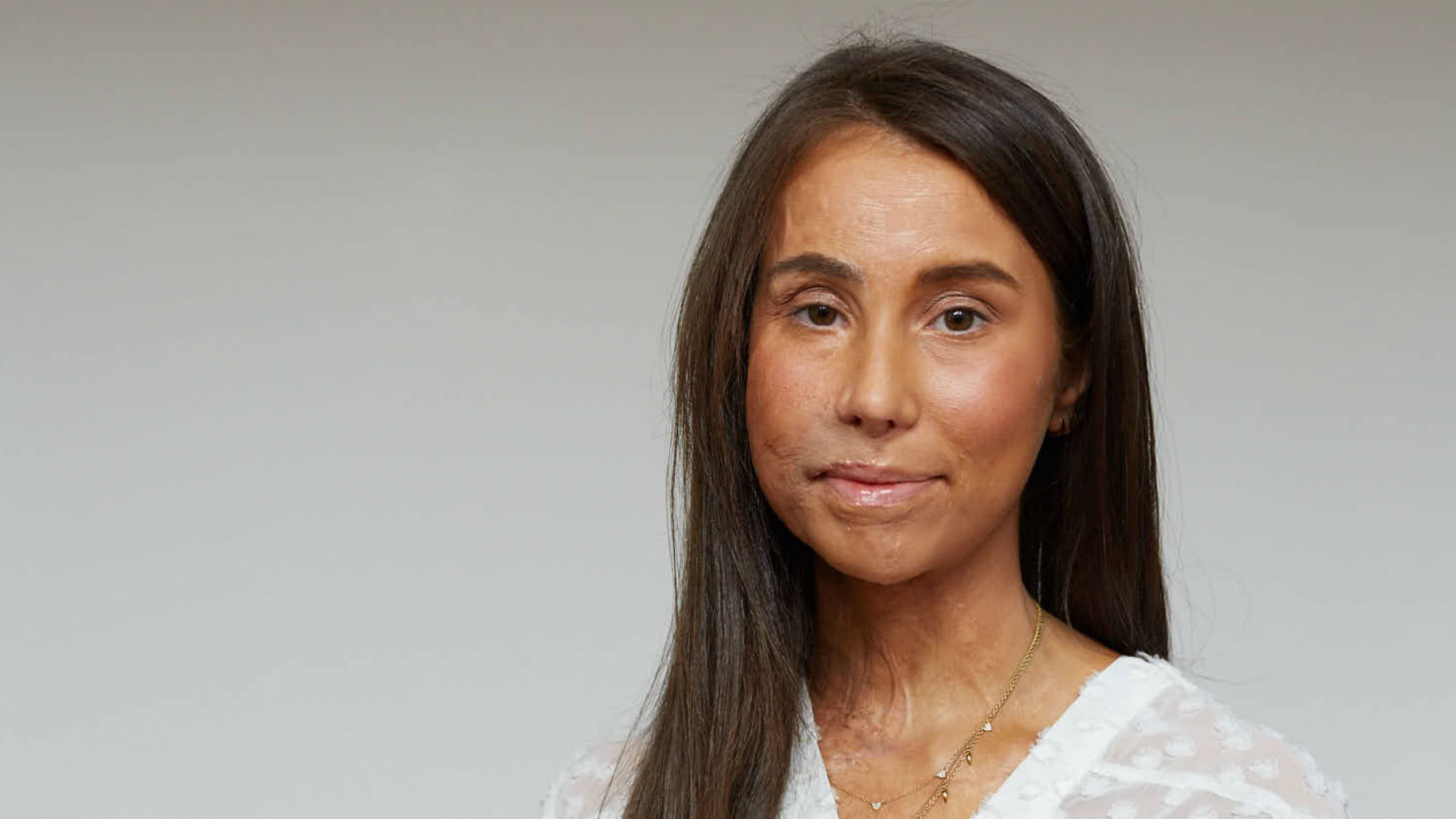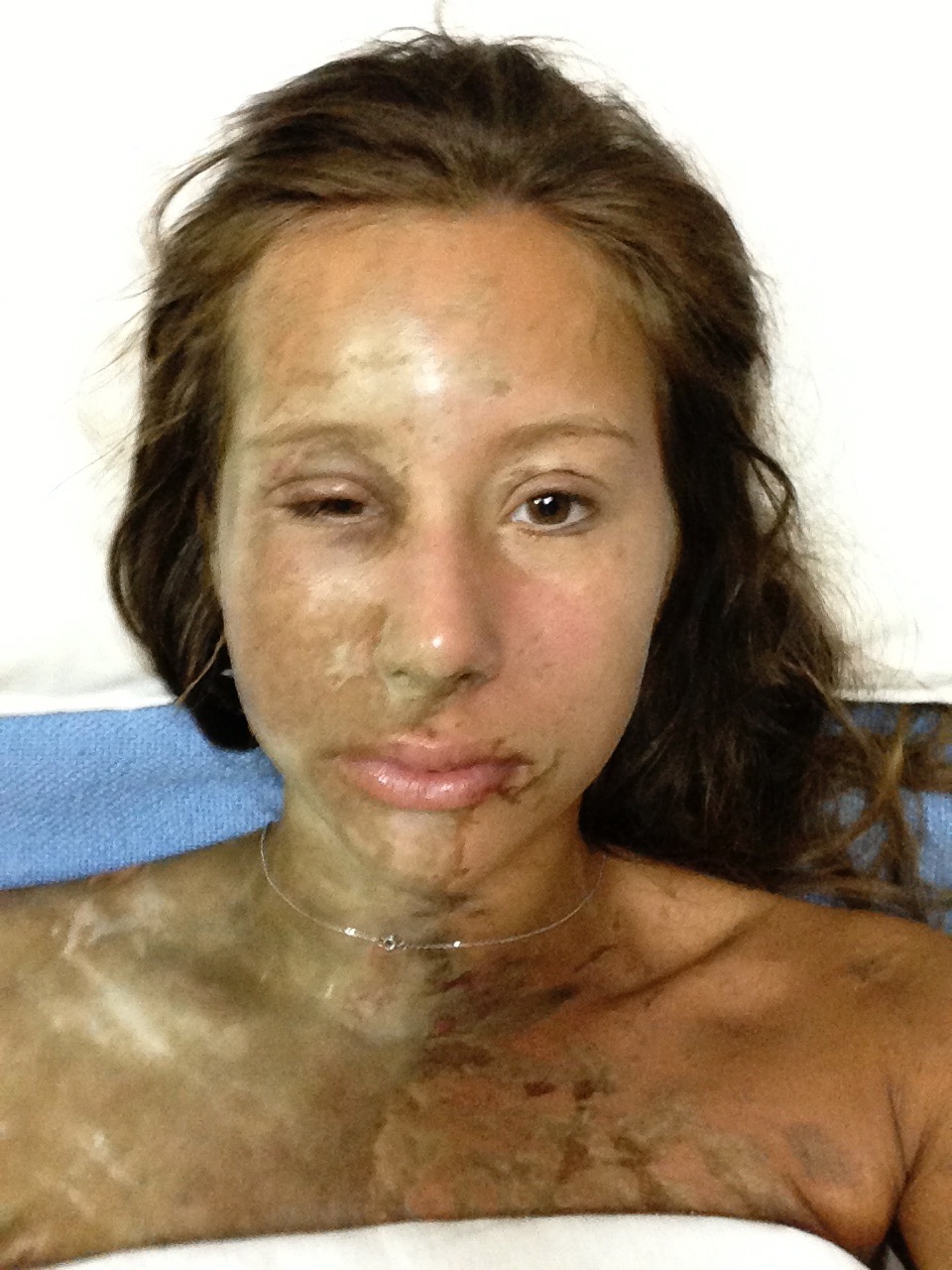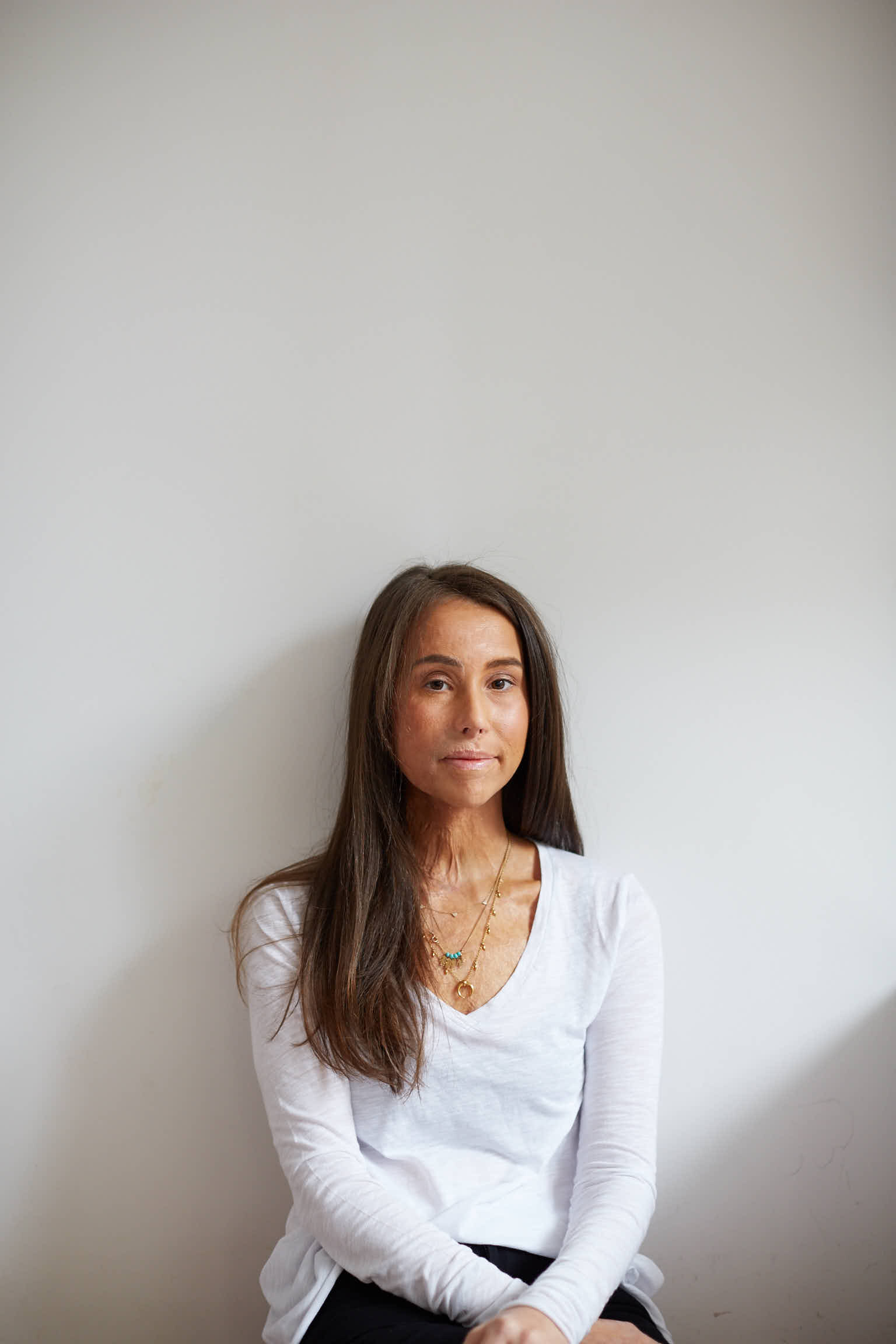'My right ear was so badly damaged, it had to be removed' - one brave woman's story of her acid attack
Five years ago Katie Gee was travelling in Zanzibar when a stranger threw acid on her, changing her life forever. Here, she tells Kate Graham about that fateful day and how she overcame the trauma to travel again

Celebrity news, beauty, fashion advice, and fascinating features, delivered straight to your inbox!
You are now subscribed
Your newsletter sign-up was successful
Five years ago Katie Gee was travelling in Zanzibar when a stranger threw acid on her, changing her life forever. Here, she tells Kate Graham about that fateful day and how she overcame the trauma to travel again
The acid attack
Imagine a thousand wasp stings on your body, a pain so sharp, so unbearable, that your legs buckle beneath you. I had been walking down a dusty street in Zanzibar laughing with my friend, when out of the blue we were subjected to an acid attack.
The memory of it still makes me shake: the splash of cold liquid on my skin, the paralysis in my body as it froze with shock, the panic as I heard Kirstie’s piercing screams. It’s strange to reflect on how, in a split second, your life can change irreversibly. Five years on, I’m still having surgery to help my body recover from what happened that day. Deep down, though, the mental scars will take much longer to heal.
Kirstie and I arrived in Stone Town, Zanzibar, an island off the mainland of Tanzania, four weeks earlier, in August 2013, searching for adventure. It was an opportunity I’d looked forward to for months – the chance to volunteer, see something of the world, and relax before the intensity of A-level results and university. We began teaching at a local primary school, getting to know the locals and immersing ourselves in the culture, while at weekends we explored the beautiful local beaches near our hotel.
We witnessed extreme poverty and were conscious of our positions as outsiders, but we never felt threatened. The people we met were incredibly friendly and we saw women and girls treated equally in mixed schools, so we never had a sense of misogyny, either.
Much of the population in Zanzibar is Muslim, so we were sensitive to the local customs, dressing respectfully and even offering to take off our Star of David jewellery (we are both Jewish). But we were told it wasn’t necessary, and were welcomed warmly by the children and their families who invited us into their lives.
On the evening of the acid attack, people had been gathering to eat after prayers. It was our last day volunteering, so we headed out for a celebratory dinner. Although we were sad to leave the children we’d become fond of, we were excited about our plans to travel in Tanzania before flying home.
Celebrity news, beauty, fashion advice, and fascinating features, delivered straight to your inbox!
As Ramadan prayers were coming to a close, the streets began to fill and I remember laughing as I flapped my oversized jumper over my body to generate a breeze in the intense heat. I had no idea that this single piece of clothing would save me from even more of the excruciating pain that was about to come.
As we turned left down a side street, a motorbike appeared and slowed right down next to us. In the split second it took me to look up and see two men, the liquid was already flying through the air towards me.
I instantly knew something terrible had happened when the searing pain began as it splashed across the right-hand side of my face and body. The smell was horrific and the pain immediate and consuming. In a flash, I reached for a dry part of my jumper to wipe my eyes and in a blind panic just ran.
It’s strange, but I instinctively knew Kirstie was OK and it was fight or flight. Within 60 seconds I was inside a beachside restaurant, managing to make my way to the customer showers where I turned on all the taps, and allowed the cold water to pour over my body. Looking at my blistering skin, I realised it must have been acid as the smell was acrid, like boiling coffee. My thin trousers and T-shirt disintegrated before my eyes.
I have never felt so utterly powerless and vulnerable as I stood nearly naked screaming for help, desperately trying to wash the acid away. My eyelids were totally burned and it felt like my face was falling off. I only remember snapshots from the next few hours. Two tourists, Nadine and Sam, stopped to help us and somehow they got us into a car and we sped to the local hospital. Kirstie kept repeating, ‘What is going on?’ but I was in such profound shock that I couldn’t even speak.
The hospital
The local hospital was total chaos – it ran out of saline solution to treat us and we had to head to a nearby hotel, where we stood under showers for over two hours, both shivering uncontrollably in terrible agony, with no idea what would come next. As reality dawned on me and I realised what had happened, my mind started to shut down and I became numb.
Over the next 24 hours, we boarded a medical plane to the mainland and then to London. It was during a stop to refuel in Nairobi that we went to the toilet and glanced in the mirror to see our faces for the first time.
We broke down and sobbed as we stared at our horrific injuries. My face was swollen to four times its normal size, my right eye completely shut from the swelling. My mouth was so swollen, I couldn’t eat or drink. My face, neck, stomach, arm, leg, where the acid had hit, were discoloured and grey.

Kirstie had fared better, having been a greater distance from the attacker, but she still had some burns to her face, arm and shoulder. As a doctor pushed my wheelchair through the airport, with Kirstie walking beside me, people stood and stared.
I’ll never forget seeing Mum’s face when she greeted us on the runway at Heathrow. I knew she was trying to be strong for me, but I could see her agony, the tears in her eyes.
'My thin trousers and T-shirt disintegrated before my eyes.'
I have so much admiration for the people who cared for us at Chelsea and Westminster Hospital burns unit. Kirstie was allowed to go home, but I had to stay. It transpired I had 30 per cent burns and a nine-hour operation followed. I had skin grafts on my face, back, arms, stomach and legs, which left my body like a patchwork quilt.
My right ear was so badly damaged, it needed to be removed. I spent two months recovering in hospital before seeing psychologists and physiotherapists. I’ve had more than 50 operations in total and there are still days when I can’t process that I will never go back to the person I was before.

The emotional and mental recovery has been the most challenging, especially when things went back to normal after the incredible outpouring of support I had. During my first weeks in hospital, I never had one evening alone – there were always friends or family there to keep my spirits up. But people had to get back to their lives – my friends went off to university and I was left behind, in limbo.
I felt lonely and isolated. My life had stopped; the dreams and ambitions I’d had for myself were over. I had happy moments, of course, but generally I felt anxious, and negative thoughts plagued me: ‘Your face is still bright red. There are endless surgeries to come. This is your life now.’
The nights were hardest. I dreamed of people throwing acid on me from all angles, of being attacked or chased. They were so vivid and frightening that I’d wake up in a sweat.
I began staying up until 2am watching TV because I didn’t want to shut my eyes. I regularly felt dizzy and disorientated, and had panic attacks. I also had to deal with the reality of my appearance. People stared when I went out. I lived in scarves, sunglasses and a beanie hat; I couldn’t look someone new in the eye because I was so ashamed of my face.
The recovery
Slowly, though, I have begun to take small steps towards rebuilding my life. Despite being gripped by fear, I went to the theatre with my mum, then on a short break to Amsterdam with a friend. I’m not as relaxed as I used to be, but I recently graduated with a 2.1 degree in sociology and feel incredibly proud of how far I’ve come.
University wasn’t the experience I’d once hoped for – no parties or drinking, plus a constant struggle with pain, anxiety and endless operations. But I’ve just been travelling across the US and Australia, and have some work lined up in the property business.
They never caught the men who did this to me and, sadly, I can’t forgive them. I don’t think I ever will. But I’ve been able to move on from the anger by compartmentalising it. I’m more focused on getting on with my life now. I still struggle with anxiety, and the rise in recent acid attacks in the UK terrifies me – the number of people needing specialist treatment has doubled over the past three years, which is shocking.
But you can’t live in fear. Today, the face I see in the mirror is one I’m proud of. When people stare at me, I stare right back. I’m proud of my scars. People tell me I’m brave but, honestly, you have no choice. When you’re forced to be strong, you are.
Photographs by Jenny Lewis
The leading destination for fashion, beauty, shopping and finger-on-the-pulse views on the latest issues. Marie Claire's travel content helps you delight in discovering new destinations around the globe, offering a unique – and sometimes unchartered – travel experience. From new hotel openings to the destinations tipped to take over our travel calendars, this iconic name has it covered.